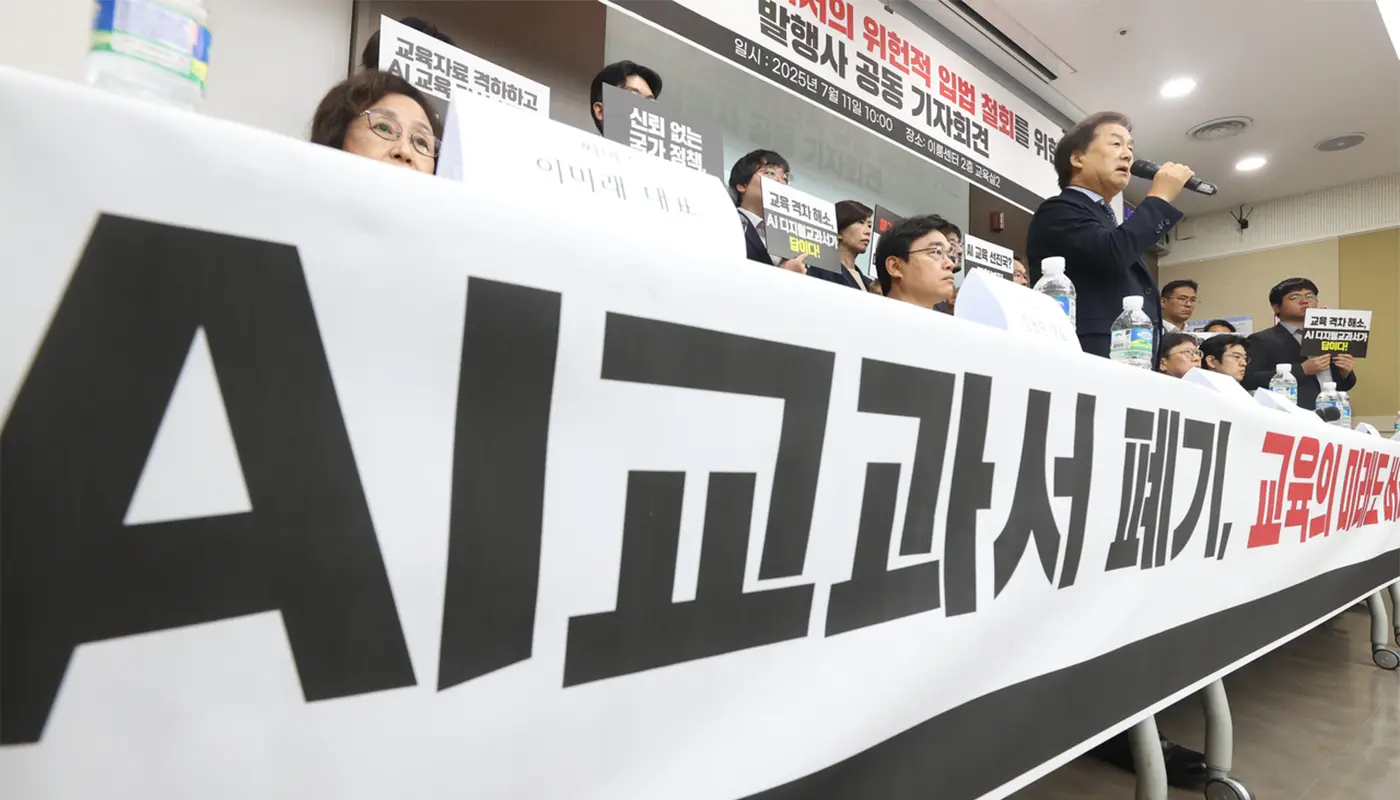SEOUL – South Korea’s National Assembly has officially stripped artificial intelligence-powered digital textbooks of their legal status as official teaching materials, effectively dismantling one of the previous Yoon Suk Yeol administration’s key education reform projects.
The decision came after the Assembly passed a bill redefining what qualifies as an official textbook. The new legal framework now limits the definition strictly to printed books and e-books, excluding educational software powered by intelligent information technology. As a result, AI-powered digital textbooks are now relegated to the category of general educational materials, removing them from the scope of state-funded textbooks.
The law takes effect immediately upon promulgation, eliminating the financial and legal support previously enabling schools to adopt the AI-based materials. The ruling Democratic Party of Korea passed the amendment unilaterally, updating a similar bill that was vetoed last year by then-Deputy Prime Minister Choi Sang-mok, who was serving as acting president at the time.
The Yoon administration had invested heavily in AI textbook development, allocating approximately 533.3 billion won (US$385 million) to the initiative. Pilots began earlier this year for English and math in primary grades 3 and 4, and for English, math, and computer science in secondary schools.
Despite its ambitious scope, the program faced strong backlash from teachers and parents, many of whom argued that it was rolled out without proper infrastructure, training, or stakeholder input. This criticism prompted the Ministry of Education to switch from a planned national mandate to a voluntary, school-by-school adoption model. Current usage stands at about 30 percent of schools nationwide.
With the new legislation in place, financial support for AI textbook subscriptions has been withdrawn. Some schools managed to secure budgets for the second semester, but the long-term sustainability of the program is now in question. A high school computer science teacher told The Korea Herald, “Unless the textbooks retain their legal status, we won’t be able to receive the necessary funding. It’s now almost impossible to use them in class.”
The publishing industry is also bracing for turmoil. Companies that invested heavily in AI textbook development based on the assumption of a nationwide rollout are now facing potential collapse. Several firms filed an administrative lawsuit against the Ministry of Education in April, citing losses due to inconsistent policies and low adoption rates.
Industry leaders warn that usage could drop drastically without official textbook status, jeopardizing the estimated 800 billion won invested into the program. Layoffs and departmental closures are expected, with some publishers already protesting outside the National Assembly in hopes of reversing the policy.
Meanwhile, the Education Ministry has not released a concrete exit strategy. A spokesperson stated the ministry would pause textbook reviews, guide schools through the transition for the fall semester, and coordinate with local education offices to minimize disruptions.





